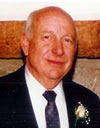Americans are meeting Muslims around the world; Muslim communities are forming in several parts of the United States. It is important for Americans to recognize that the Muslim mindset is radically different from the mental patterns of the western world. Muslims think differently, they reason differently, they use words differently, and their world and life views are  radically different. The desert tribal mentality of Mohammed is deeply instilled in early years, and advanced education does little to correct or improve their ideas. A few characteristic concepts are presented here and others in later posts, the Lord enabling.
radically different. The desert tribal mentality of Mohammed is deeply instilled in early years, and advanced education does little to correct or improve their ideas. A few characteristic concepts are presented here and others in later posts, the Lord enabling.
Americans who fail to acknowledge God nonetheless accept an orderly, dependable universe. Christians consider that the attributes of God, including love, holiness, justice, right/wrong, etc., undergird the universe. Muslims posit Allah as indescribable, inscrutable, without attributes or personality, merely mind, eternally existent, absolute will, incapable of non-existence. They do not perceive of Allah as immutable, unchangeable, or wise but only as supremely volitional. There is no moral standard in the nature of Allah to direct him to act morally. He does not do what is right; what he does is right because he does it. What he might do tomorrow may not be the same as he does today.
While within the trinity there was eternal expression of love, Muslims stress the absolute singularity of Allah: “He is Allah, Singular. Allah the Absolute. He begetteth not nor was begotten, and to him have never been one equal” (Sura 112). Most Muslims mistakenly believe that the Christian trinity is God, Mary, and Jesus (Sura 5:116). Allah is declared to be neither a person nor a spirit (Sura 42:11). Allah is close to us by his knowledge but not as a person; he is completely “other.”
Muslims make five assertions concerning their deity: 1) There is only one god. 2) That god is only supreme will, a force, not a person; his choices are totally arbitrary. 3) His name is Allah. He also has nearly a hundred other names, none of which suggest love, compassion, or grace. 4) Allah has communicated with mankind through prophets, the final prophet being Mohammed. 5) The Koran revealed to Mohammed existed with Allah eternally, with the words and letters set as dictated.
Islam is fatalistic and deterministic. Allah determines all things, good and bad. He formed some men and spirits only to send them to hell: “that I will fill hell with the jinn [demons] and mankind together” (Sura 32:13). The Koran states that Allah is the author of and a participant in both good and evil. Orthodox Islam asserts that all human thoughts, speech, and behavior, either good or evil, were predetermined by the Irresistible. Allah can and does change his mind: “And when we put a revelation in place of [another] revelation—and Allah knowest best what he revealeth” (Sura 16:101). In effect, what he said in some parts of the Koran is later declared to be untrue; thus, it is customary for Allah to lie and not always wrong for Muslims to lie.
Americans should be aware of instructions to terrorists who have infiltrated the United States government: a Muslim has a positive duty to protect his fellow Muslims from unbelievers, and he is instructed to lie in their defense. This has involved deliberate mis-translations, favored treatment, inaccurate investigations, and loss of critical evidence. They tend to judge Americans as gullible, easy to deceive.
Muslims scoff at the notion of a deity who is subject to an absolute law. What Allah as supreme decrees is law. An earthy ruler similarly sets the law for those under his rule, and law may be changed as he wishes. The “justice” conceived by a Muslim is best understood as retribution; anger is predominant, and often the retribution exceeds the claimed offense.
The “theology” of Islam engenders fear, not love. A Muslim fears what an unpredictable Allah might do to him. He fears what a fellow Muslim might do. A Muslim who slightly deviates from prescribed ritual or custom fears his neighbors. These are fatalistic fears, well expressed as “Inshallah” (”If Allah wills”)—it has been predetermined by Allah.
Muslims consider that there are major and minor sins. Major sins include abandonment of the Islamic faith, refusal to be converted to Islam, declaring Mohammed to be a liar, adultery, murder, mistreatment of one’s parents, and desertion during jihad [holy war]; minor sins include lying, deception, anger, and lust (Sura 4:31; Hadith 4:28). Even a Muslim infant not yet able to recite “Allah is one god and Mohammed is his prophet” is a major sinner.
To Muslims, man is not sinful by nature, but only ignorant; he is really good by nature and needs only proper instruction to do good works. “Doing good” to a Muslim is neither doing something morally correct instead of what is wrong, nor performing in a way that benefits society. Performing the five “pillars” of Islam, the specified rituals, constitutes good works: orally declaring there is one god and Mohammed is his prophet, praying five times a day, fasting during the daylight hours of Ramadan, giving alms to the poor, and, for some, making the journey to Mecca. Jihad (holy war) is incumbent only when declared by an imam.
Muslims are not much influenced by education or by arguing. The gospel is, for them as for others, the power of God unto salvation. For pastors and those genuinely interested, I recommend Islam and the Bible: Why Two Faiths Collide by David Goldman (Moody Publishers, 2004). It is clearly organized and well-documented, contains a helpful chapter on how to reach Muslims, and has a good glossary.
 Many of the paragraphs included in this essay appeared in “Cogitations” (cbsvan@sbcglobal.net) during the summer and fall of 2006.
Many of the paragraphs included in this essay appeared in “Cogitations” (cbsvan@sbcglobal.net) during the summer and fall of 2006.
_________
Warren Vanhetloo has A.B., B.D., Th.M., Th.D., and D.D. degrees. He served three pastorates in Michigan, taught 20 years at Central Baptist Theological Seminary (Plymouth, MN), taught 23 years at Calvary Baptist Theological Seminary (Lansdale, PA), and is listed as adjunct faculty at Calvary. Retired, he lives in Holland, Michigan. Since the death of his wife a year ago, at the urging of fellow faculty and former students, he sends an email newsletter called “Cogitations” to those who request it.
No comments:
Post a Comment